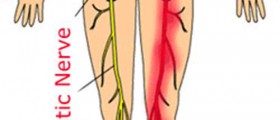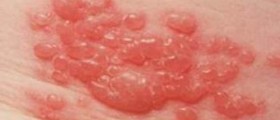Definition of Nerve Pain
Nerve pain or neuralgia is generally every nerve system disease. Symptoms may be very intense burning or stabbing pain caused by the irritated or damaged nerve. Depending on the reason the nerve is irritated, there are several types of nerve pain. Pain is usually brief and severe and it may be spreading along the whole course of the nerve.
Nerve pain may have several causes, like infection, eye strain, or tooth decay. In cases, where you have nerve pain symptoms, homeopathic remedies can be very useful. They have no side effects and are cheap, safe and easy to use. For recommendations and instructions about dosage, ways of use and what particular remedy to choose for your type of nerve pain, it would be best to consult your doctor or homeopathic expert.
Homeopathic Remedies for Nerve Pain
Kali phosphoricum is actually potassium phosphate and it is used in cases of nerve debility when symptoms are melancholy and irritability. Tonic of Kali phosphoricum is also good for headaches.
Verbascum is a homeopathic remedy used in cases of intensive pain in the nerves, which gets worse from the pressure, cold air, talking or sneezing. Tinctures of Kalmia are also used in severe and long-lasting cases of neuralgia.
Magnesia phosphorica is a homeopathic remedy that is used when symptoms that indicate the use of this particular remedy are intermittent pain relieved by warmth, and pain can be felt in the whole side of the neck or the head. Magnesia phosphorica is very efficient for treatments, especially in facial neuralgias. Also, Allium Cepa and Pulsatilla can also help.
Hypericum perforatum is a homeopathic remedy that derives from a plant named St. John’s Wort, and it is recommended in cases of severe and shooting pain that are a consequence of some nerve injury. A burning and tickling sensation accompanied by numbness may also be felt. Hypericum is also recommended for use when affected painful areas have many nerves ending in them, like eyes, lips or toes.
- Hypericum perforatum (St. John’s Wort) is an alternative remedy used primarily for depression but also is used for rheumatism, gastroenteritis, headache and neuralgias.
- The conventional management of TN involves non-surgical and surgical procedures. Pre-surgical options such as peripheral nerve blocks and botulinum toxin injections are suggested for patients who are not tolerating systemic pharmacotherapy and are not optimal candidates for surgical intervention.
- A 53-year-old Hispanic female patient who came to our orofacial pain clinical service presenting with a history of trigeminal neuralgia (TN). The patient was not able to get an appointment soon enough and decided to take an over the counter homeopathic preparation of Hypericum perforatum since she found on the internet that it was effective for nerve pain. The patient responded dramatically to the Hypericum perforatum preparation. The use of this homeopathic preparation relieved completely the TN pain.
- Despite the initial pain relief with blocking techniques, the evidence available to support their efficacy is unclear. Botulinum toxin injections seem to be an attractive treatment with limited side effects.
Mezereum is a remedy recommended for nerve pain treatment when symptoms include pain accompanied by chills and sensitiveness and aggravated by warmth. A feeling of numbness may appear after the pain attack.
Ruta Graveolens and the plant that is derived from are also known as rue. This homeopathic remedy is recommended for treatments of nerve pain in cases when it is associated with strains or sprains of some kind or when there is a deep and aching pain that occurs after bruising or tendon injuries.


















Your thoughts on this
Loading...